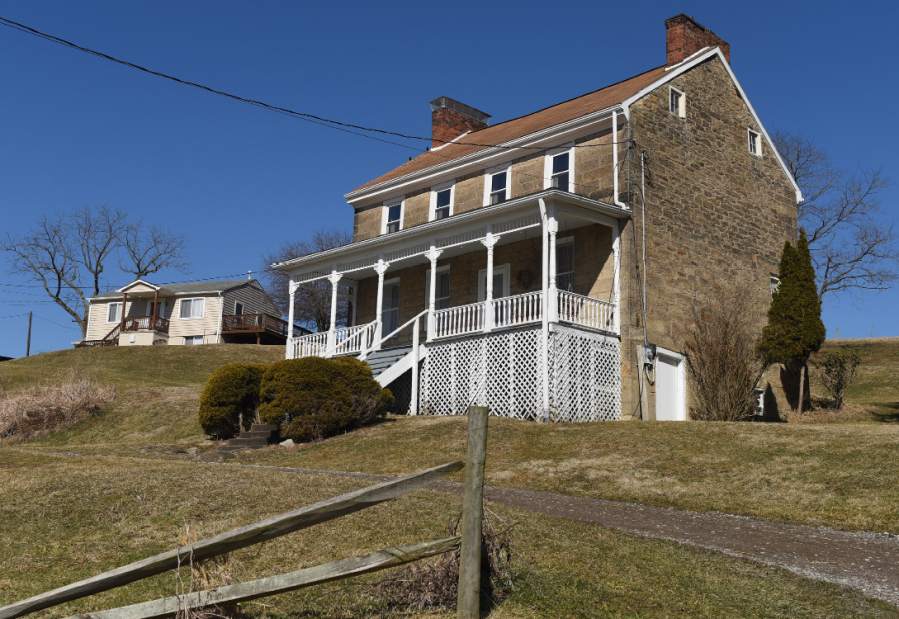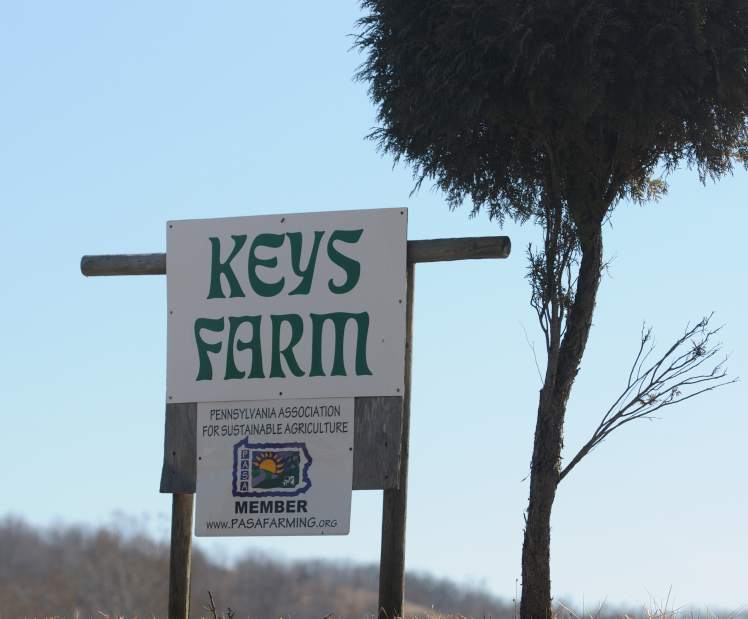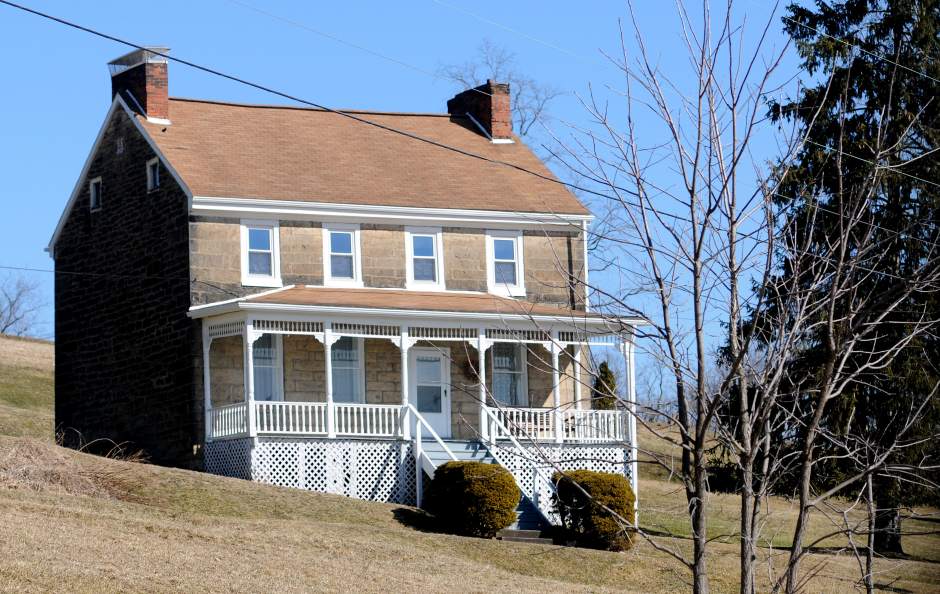Founder of nonprofit retires to Washington County amid scrutiny
The Rev. Arthur B. Keys Jr. is trading the fast-paced, politically charged environment of Washington — where he made millions running a giant nonprofit organization — for the peaceful, rolling hills of his family's farm in Washington County.
But threatening the Keyses' plans for a quiet retirement are federal investigations into the organization he and his wife founded, International Relief and Development, and how it spent $2.4 billion in government money.
Inspectors general for the U.S. Agency for International Development, Department of State and Afghanistan Reconstruction are examining whether IRD, the nation's largest nonprofit contractor in Iraq and Afghanistan, should be held responsible for alleged misspending and misconduct. USAID and special investigators for Iraq and Afghanistan reconstruction have raised allegations including waste and fraud, poor internal controls, suppressing whistle-blowers and questionable reporting of results achieved using billions of dollars of taxpayer money.
On the advice of his attorneys, Keys declined to respond to specific allegations.
“I feel very good about how we were able to implement programs that the communities (abroad) wanted and that cut through all of the various impediments, both security and governmental,” Keys, who founded IRD in 1998, told the Tribune-Review in one of his first interviews since resigning as CEO last summer.
IRD is under scrutiny for lavish staff parties, pricey retreats and salaries and bonuses it paid executives and about three dozen other employees. Keys and his wife, Jasna Basaric-Keys, received $5.9 million in compensation from IRD between 2008 and 2012, tax records show. His daughter and brother-in-law, IRD employees, received $1.3 million during that time.
Keys and his wife relinquished or returned to IRD last summer $1.7 million they were slated to receive in deferred compensation and cash perks, including $590,625 he was supposed to make as an ongoing “mentor.”
Internal controls Keys put in place included independent assessments to ensure “their total compensation was within range of their peer firms,” said Daniel Johnson, a Washington-based attorney for Keys. All executive salaries had to win approval of the board and its compensation committee.
Daniel Borochoff, president of the nonprofit watchdog Charity Watch, said that generally it's not a good idea for nonprofit leaders to hire family members.
“Internal controls break down when there's collusion,” Borochoff said, “and family members are more likely to collude because they already have those close personal relationships.”
Ambitions abate
Keys' ties to Western Pennsylvania run deep. Keys, 70, a Washington, Pa., native, graduated from Washington High School and earned his bachelor's degree in history and political science 22 miles west at Bethany College in West Virginia, from which he has an honorary doctorate in humane letters and serves as a board trustee. Ten years ago, Keys purchased a large swath of pasture in Amwell, land his ancestors farmed from 1785 through the late 1920s.
Reclaiming the Washington County land to produce organic hay and grass-fed beef as the family-run Pleasant Valley Organic Farm is not the least bit intimidating for Keys. IRD ran agricultural projects in poverty-stricken countries and war zones as part of $3 billion worth of aid and development efforts in 40 countries.
“It's kind of a nice relief to be dealing with a very manageable size of projects,” said Keys.
The nonprofit he built carried out a wide range of ambitious projects in dangerous zones into which many relief groups did not want to venture. It built hospitals, roads, sewage systems and schools; provided pharmaceutical, medical and food supplies; and started youth programs and jobs as part of the military's strategy to stem violence and build economies.
Questions about IRD's transparency and expenditures loomed for years in audits performed by USAID and the special inspector generals for reconstruction in Afghanistan and Iraq. Reports of deeper investigations into alleged misspending and misconduct surfaced in The Washington Post in May, just as Keys stepped down from his leadership post.
IRD's ability to maintain its prominent role in international relief is in jeopardy.
In late January, USAID suspended IRD from federal work, barring the contractor from obtaining contracts but allowing it to complete programs in progress.
“The agency's review revealed serious misconduct in IRD's performance, management, internal controls and present responsibility,” USAID officials said in a statement. “USAID has a zero tolerance policy for mismanagement of American taxpayer funds and will take every measure at our disposal to recover these funds.”
Last month, new IRD CEO Roger Ervin forced several senior IRD executives to resign, dismantled the board of directors and laid off 21 staff members from its 150-employee headquarters in Arlington, Va. It employs about 1,700 worldwide.
“IRD's corrective action initiatives over the past nine months in the areas of leadership, compliance and internal controls represent substantial progress,” Ervin said.
Worrisome indicators
Ken Berger, president of the New Jersey-based nonprofit watchdog group Charity Navigator, said the allegations signal “an indication of potential fiscal mismanagement at one end of the spectrum, all the way to purposeful, unethical, potentially fraudulent behavior at the other end — all of it bad, all of it very worrisome.”
The situation reflects the broader difficulty in overseeing complicated and expensive humanitarian aid and development efforts the government increasingly has outsourced to a small pool of nonprofit and for-profit contractors, said Vijaya Ramachandran, senior fellow with the Washington-based Center for Global Development.
Through the 1970s, USAID was a major player in running development programs in war-torn and poverty-stricken countries, she said. Amid declining staff and internal resources, the agency shifted to relying heavily on outside groups to handle work in the field.
“Companies that began with a few people suddenly became multimillion- or multibillion-dollar contractors processing huge amounts of money,” Ramachandran said.
Keys started his operation 17 years ago with his wife and daughter, attracting just over $1 million in revenue and hiring about 10 employees in its first year.
“The whole purpose of IRD was to address the suffering of the world's most vulnerable groups and to provide tools and resources needed to increase their self-sufficiency,” said Keys, echoing the organization's mission statement. “That was the main purpose, and we did that in a very open and transparent way, working very closely in local communities and donors.”
By the mid-2000s, IRD was the nation's largest nonprofit contractor in Iraq and Afghanistan, at its peak employing more than 5,000 people worldwide and reporting more than $700 million in annual revenue.
Keys had several advantages that helped him rapidly grow the organization in size and prominence: He had insight on how to secure USAID contracts through his work at Keys and Associates, a company he founded in 1992 to help nongovernmental organizations win grant money; a political and advocacy background through his stints with the Interfaith Action Committee for Economic Justice and the United Methodist Committee on Relief in Georgia; and firsthand knowledge of war-torn challenges from living in the former Yugoslavia and taking in his in-laws when they were kicked out of Bosnia.
“We felt comfortable in conflict areas others shied away from,” Keys said.
Resolving disputes
His attorneys said they have no knowledge of direct investigations into Keys or his wife, other than what they read in news reports. The law firm's work has been limited to resolving disputes between IRD and the Keys on compensation issues and questioned overhead expenses.
USAID flagged American Express credit card charges and overhead costs that may have been “unallowable,” including hotel retreats with open bars billed to the government as “staff morale,” and Washington Redskins pro football tickets, according to The Post.
Keys' law firm retained an independent auditor who found “the majority of those charges attributed to Keys were in fact appropriate,” Johnson said.
USAID says it has increased oversight of its contracts and grants during the past several years, and that “the suspension of IRD demonstrates USAID's continued commitment to accountability.” The agency has until April 13 to respond to IRD's request that the suspension be lifted.
Keys emphasized he has no ties to IRD's new management. His brother-in-law Mladen Basaric is IRD's global director of information technology. As he hung up the phone on a recent interview, Keys prepared to make another call to order organic seeds for the family-run business.
“Our goal on the farm is to model the same kind of sound development practices that we've done everywhere else,” he said, “so we feel very good about our operation and its success.”
Natasha Lindstrom is a Trib Total Media staff writer. Reach her at 412-380-8514 or nlindstrom@tribweb.com.





